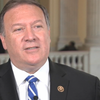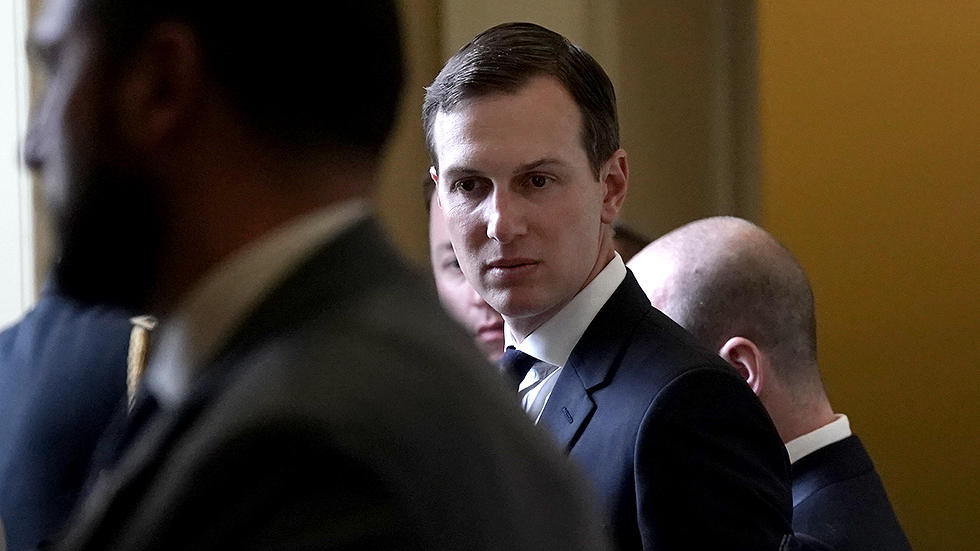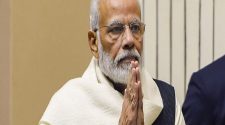The White House has released the economic portion of its long-promised Middle East peace plan, which calls for $50 billion in new investment to aid Palestinians and neighboring Arab states, as well as the building of new infrastructure to connect the West Bank and Gaza.
The plan unveiled on Saturday, called “Peace to Prosperity,” calls for investment in infrastructure, private-sector growth and regional development, among other areas, in order to “empower the Palestinian people to build a prosperous and vibrant Palestinian society.”
It’s being touted by the Trump administration as “the most ambitious and comprehensive international effort for the Palestinian people to date.”
White House senior adviser Jared Kushner Jared Corey KushnerManafort, Hannity talk Trump, Mueller in previously undisclosed messages Trump’s Israel-Palestine plan is all smoke and mirrors The Hill’s 12:30 Report — Presented by MAPRx — Trump jumps into 2020 race MORE, the architect of the Trump administration’s peace plan, is expected to formally introduce the economic component at a conference in Bahrain next week. It will only be implemented if a political solution is reached between Palestinians, Israelis and other actors in the region.
Jared Corey KushnerManafort, Hannity talk Trump, Mueller in previously undisclosed messages Trump’s Israel-Palestine plan is all smoke and mirrors The Hill’s 12:30 Report — Presented by MAPRx — Trump jumps into 2020 race MORE, the architect of the Trump administration’s peace plan, is expected to formally introduce the economic component at a conference in Bahrain next week. It will only be implemented if a political solution is reached between Palestinians, Israelis and other actors in the region.
According to the plan, around half of the $50 billion in aid would go to Palestinians in the West Bank and Gaza over a 10-year period, while the other half would be split among other Arab countries in the region.
The plan also calls for boosting the tourism sector in Palestinian lands, as well as providing better access to education and job-training programs.
Doubts have swirled around the administration’s much-touted peace plan, which has been in the works nearly as long as President Trump Donald John TrumpThe global economy is a soap opera, expect some plot twists Huawei sues US government over seized equipment Trump defends planned ICE deportations MORE has been in office. Last Sunday, the White House’s special envoy Jason Greenblatt said the political portion of the peace plan could be delayed until November.
Donald John TrumpThe global economy is a soap opera, expect some plot twists Huawei sues US government over seized equipment Trump defends planned ICE deportations MORE has been in office. Last Sunday, the White House’s special envoy Jason Greenblatt said the political portion of the peace plan could be delayed until November.
His comments came after the White House decided to delay the rollout, which had at one point been pitched by Kushner for June, after Israeli Prime Minister Benjamin Netanyahu Benjamin (Bibi) NetanyahuMORE failed to form a governing coalition.
Benjamin (Bibi) NetanyahuMORE failed to form a governing coalition.
Trump himself also damped expectations for the plan after reports that Secretary of State Mike Pompeo Michael (Mike) Richard PompeoTrump critic Brennan praises his Iran decision: I ‘applaud’ him Pence to postpone speech on China policy ahead of G-20 meeting between Trump, Xi The Hill’s 12:30 Report — Presented by MAPRx — Trump calls off Iran strike at last minute MORE had cast doubt on it in a closed-door meeting later reported by the Washington Post.
Michael (Mike) Richard PompeoTrump critic Brennan praises his Iran decision: I ‘applaud’ him Pence to postpone speech on China policy ahead of G-20 meeting between Trump, Xi The Hill’s 12:30 Report — Presented by MAPRx — Trump calls off Iran strike at last minute MORE had cast doubt on it in a closed-door meeting later reported by the Washington Post.
“It may be rejected. Could be in the end, folks will say, ‘It’s not particularly original, it doesn’t particularly work for me,’ that is, ‘It’s got two good things and nine bad things, I’m out,’ ” Pompeo said, according to an audio recording obtained by the Post.
Asked by reporters to comment on his top diplomat’s remarks, Trump said, “Look, we’re doing our best to help the Middle East to get a peace plan, and he [Pompeo] may be right. I mean, most people would say that.”


















